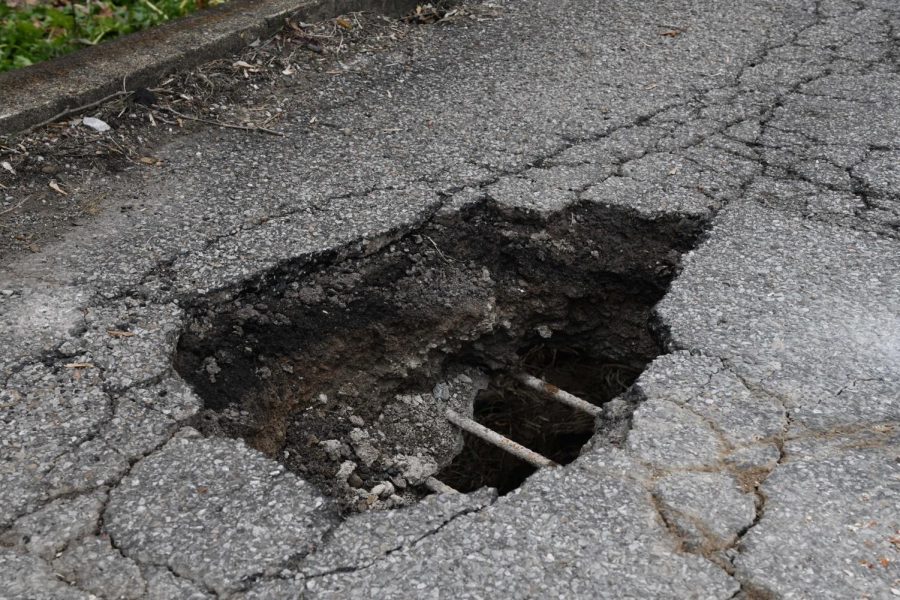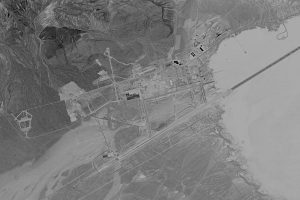Bridge closed due to ‘dangerous conditions’
December 16, 2021
A county bridge had to be closed Wednesday afternoon after it deteriorated beyond any possible temporary repair.
The structure was slated to be replaced this fall, but delays out of the control of the Engineer’s Office pushed back the project till at least Spring.
According to Muskingum County Engineer Mark Eicher, the structure at the intersection of Pinkerton Lane and Thompson Run Road, which bridges over the waterway of Thompson Run, had been closely monitored for quite some time.
Bids for a replacement had already been received and awarded, but delays and supply chain issues kept pushing the project back.
Built in 1952 and one year shy of its seventh decade in operation the bridge had already outlived its useful life, Eicher explained, but limited resources have made keeping up the maintenance and replacements of structures difficult.
The county ranks at the very top in the state for the number of bridges it maintains but lacks the financial resources other more populous counties have to deal with the problem of aging infrastructure. State and federal funding typically isn’t equitably dispersed leaving the citizens of each county responsible.
Regardless, staff regularly inspects bridges for changes in conditions and acts accordingly with safety at the top of all decision-making.
The two-lane Gaysport Bridge, for example, which crosses the Muskingum River in the southern part of the county, was restricted to one direction of travel at a time previously, but a recent inspection closed the structure through at least the end of 2022.
With asphalt plants now closed and devices needed to complete the build in short supply, Eicher estimates it will be some time into mid-2022 before it’s reopened to traffic.
In the meantime, the roughly 1,000 vehicles that travel over that bridge daily will have to find an alternative route.
“We’ve been monitoring it and hoping it would make it through the winter, but unfortunately the concrete deck just deteriorated so rapidly to a point where we thought it was unsafe,” said Eicher.
A temporary solution is typically to place a steel plate over the hole, but according to Eicher, as vehicles drove over the plate, chunks of concrete were falling off the structure and into the water below which forced the closure.
Concrete blocks have been placed to ensure vehicles stay off the bridge until its demolished and ultimately replaced.
The cost for the complete project is currently estimated to be roughly $344,000 but inflation could likely inflate those prices substantially.
Eicher said material prices have gone up between 15 to 25 percent this year alone.
That has a direct impact on the number of projects that can be completed, Eicher explained. This year the Engineer’s Office was able to chip and seal 60 miles of county-maintained roadways, next year, Eicher estimates, that will be only 40 miles due to increased costs.
“The Gas Tax increase that was put on a couple of years ago has basically been eaten up in inflation,” Eicher said explaining the worsening situation.
As municipalities across the country prepare for large sums of federal dollars to flow into construction projects, a concern among government watchdogs and analyst alike is that without careful intervention, sizable amounts of allocated funds will be eaten up by rising costs anchored by the number of employees in the industry and the finite resources available.














